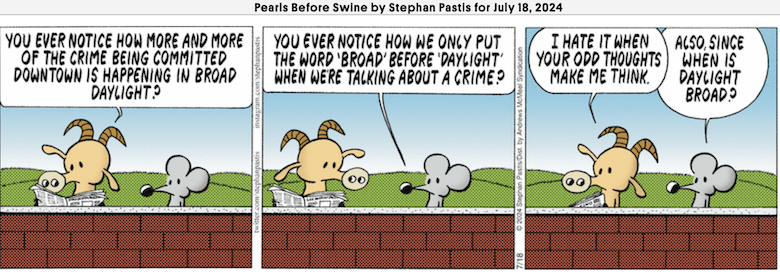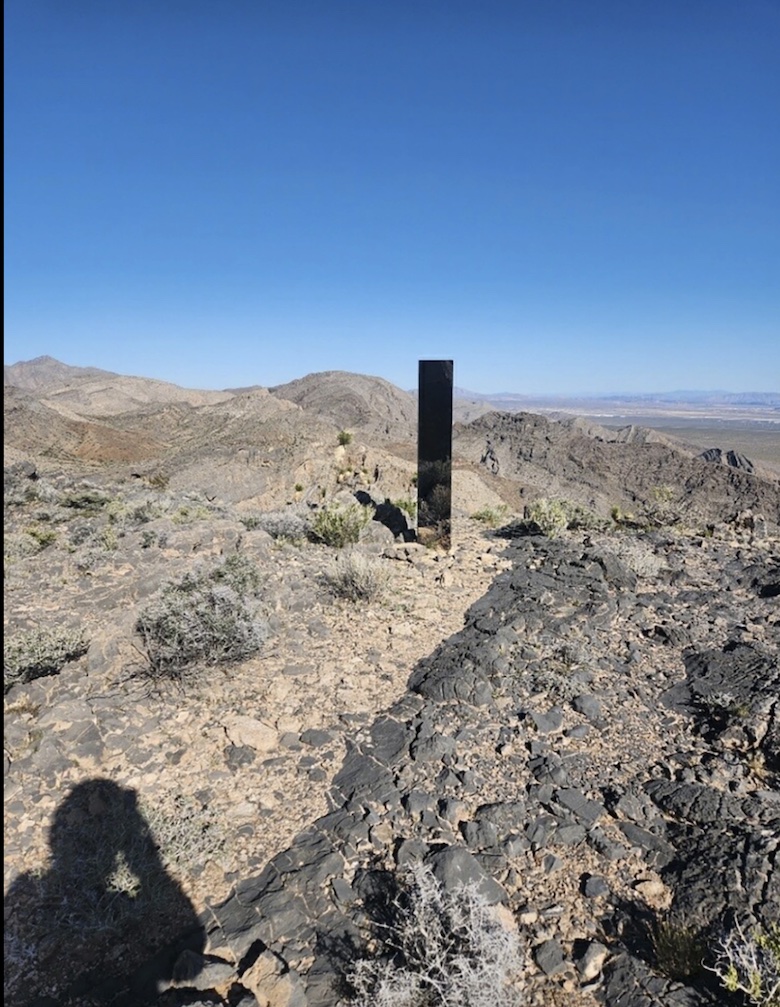As people know, I have moderated the comments with a very light hand, assuming that mature adults would know how to behave in a public space. It took outright hate speech targeting marginalized groups to cause me to ban people, and that has happened very rarely. But I have been getting increasingly irritated by the tedious and hostile exchanges among a few commenters that tend to fill up the comment thread with repeated posts about petty or off-topic issues.
So here is new new rule: No one will be able to make more than three comments in response to any blog post. Violation of that rule will result in banning.
But I also want to address a couple of deeper concerns for which a solution cannot be quantified but will require me to exercise my judgment.
It is well known that the comments sections on the internet can be a cesspool. I had hoped that the people who come to this site would be different, leading to more mature exchanges. But I was clearly too sanguine. We sometimes have absurdly repetitive exchanges seemingly based on the childish belief that having the last word means that you have won the argument or with increasingly angry repetitions being sprinkled with puerile justifications like “They started it!”
The other issue is the hostility that is often expressed, often triggered by the most trivial of things. People should remember that this is a blog, not a journal or magazine. There are no editors, proof readers, and fact checkers. In such a casual atmosphere, people (and that includes me) will often inadvertently be less than precise or accurate in what they say. If the error is trivial but the meaning is clear, the error should be ignored. If the meaning is not clear, clarification can be politely asked for. If it is a genuine error, a correction can be politely made. So in future, I will police the tone of the comments more closely. If I think people are being rude or condescending or insulting (and I do not mean just abusive language but also tone), I will ban the person.
A recent email sent to me privately by a long-time lurker brought home to me how people might be hesitant to join in the conversation here, even if they have something to say, out of fear that something that they write, however well-intentioned, will be seized upon and responded to in a hostile manner by some of the most egregious offenders.
Here is a portion of the email.
Are you aware that the comments in the comment sections of your posts can be perceived as dauntingly hostile?
It’s mostly one specific commenter named [name redacted], but there are a couple of others as well. In most cases… it’s not so much the actual, literal words but the general content and tone. And I know that makes the problem difficult to pin down. But there is so much arrogance and condescension and contempt and passive aggression in some of his (and some others’) comments that often there is hardly any productive discussion in the comment section anymore, just general grandstanding and bashing each other.
Also, in rather rare cases there is very open abusive language. A recent commenter called another commenter “demented fuckwit”. Even if their frustration with the other commenter was understandable, such open verbal abuse makes for rather painful reading.
This hostile atmosphere has kept me from commenting several times. I haven’t dared partaking in the discussions because I didn’t want to elicit such aggressions against my own person. And even just reading them being directed at others makes me feel very unsettled. It unsettles me to the point that I have increasingly skipped the comment sections; because I’d rather miss out on interesting contributions than stumble over frequent hostility. I know that I’m more vulnerable than many because of prior experiences with verbal abuse, but also I don’t believe I’m the only one who feels like that.
I know there are differing opinions about what constitutes (un)productive commenting, and about moderating comments. I totally get it if your opinions and preferences differ from mine. If nothing changes, I will simply stop reading the comments – and will continue to enjoy reading your original posts!
I thought the writer made a persuasive case that my earlier policy was not working and that I needed to do something different. It looks like I have swung from being highly lax to very strict. Maybe in the future I’ll find some middle ground but I am going to try this for a while.
So I would suggest that in future commenters think carefully before they post anything, taking into account what they say and how often they say something. They should try to put themselves in the shoes of the person they are arguing with and think about how they might feel if their comment had been directed at them. They should also think about how their comments might look to others. It surprises me that people do not realize how badly this kind of behavior reflects on themselves.
I realize that these guidelines are somewhat vague. So a good rule of thumb would be: If in doubt as to whether to post something because it might violate these boundaries, that is a good sign to not post it. I will be the sole judge of whether the boundary has been crossed.



